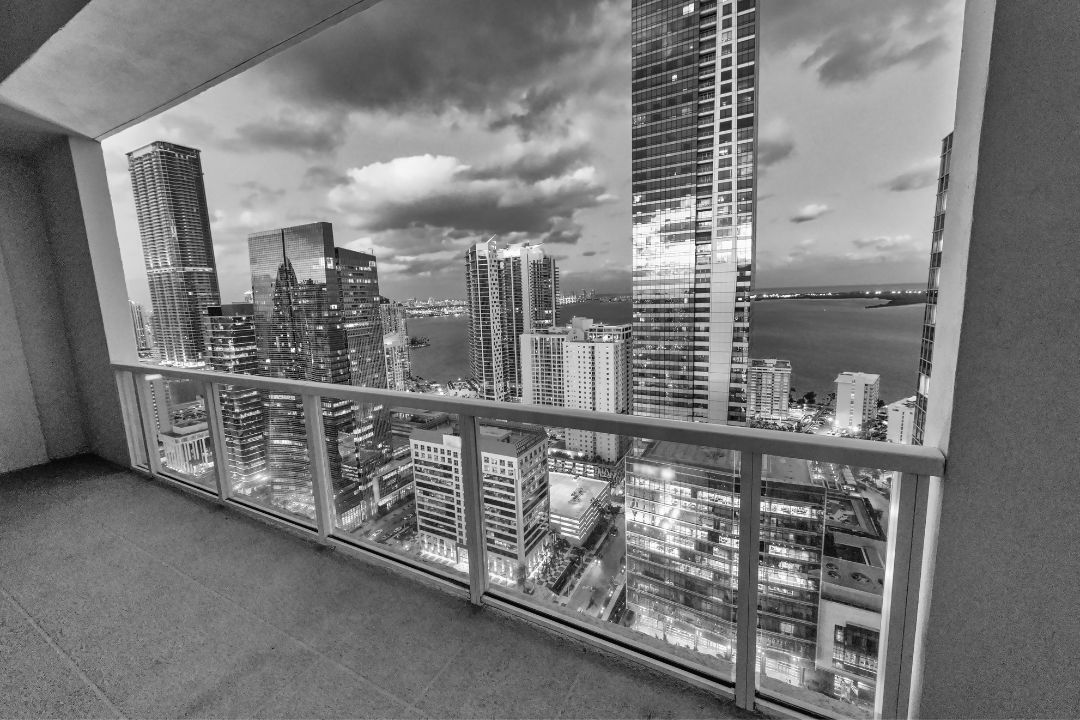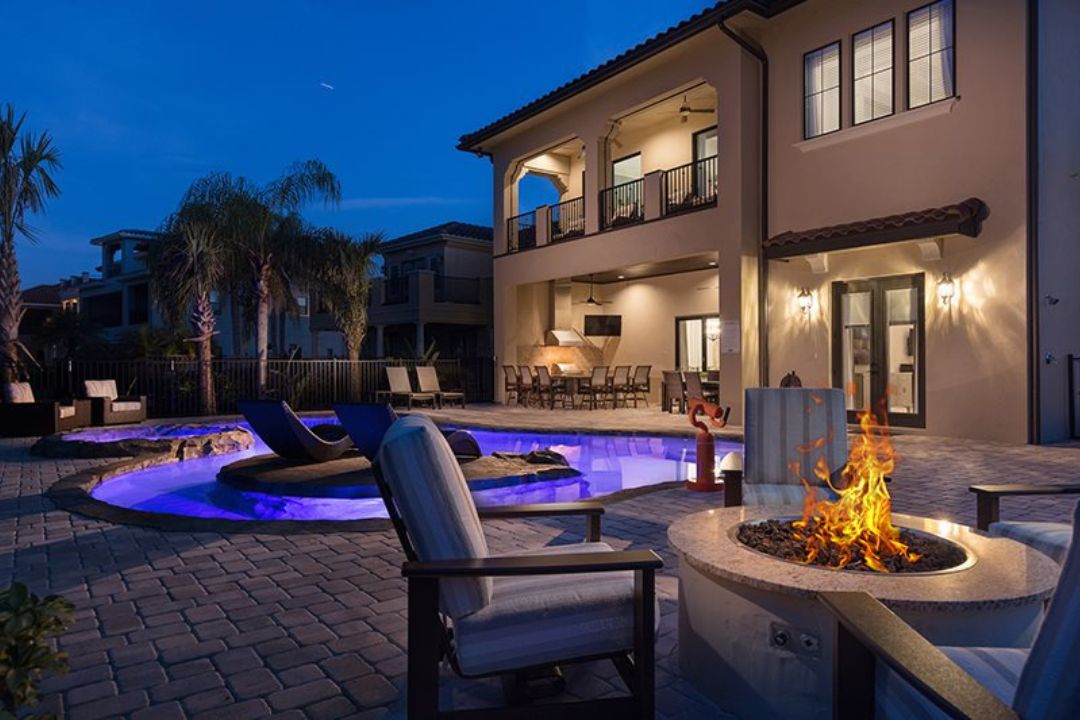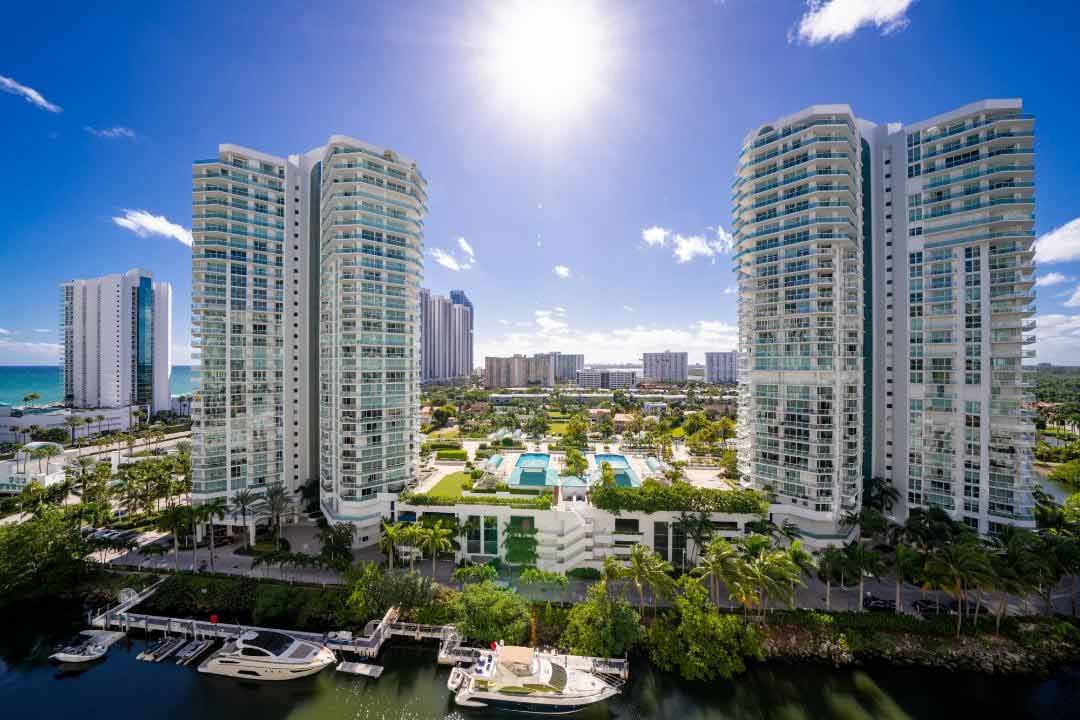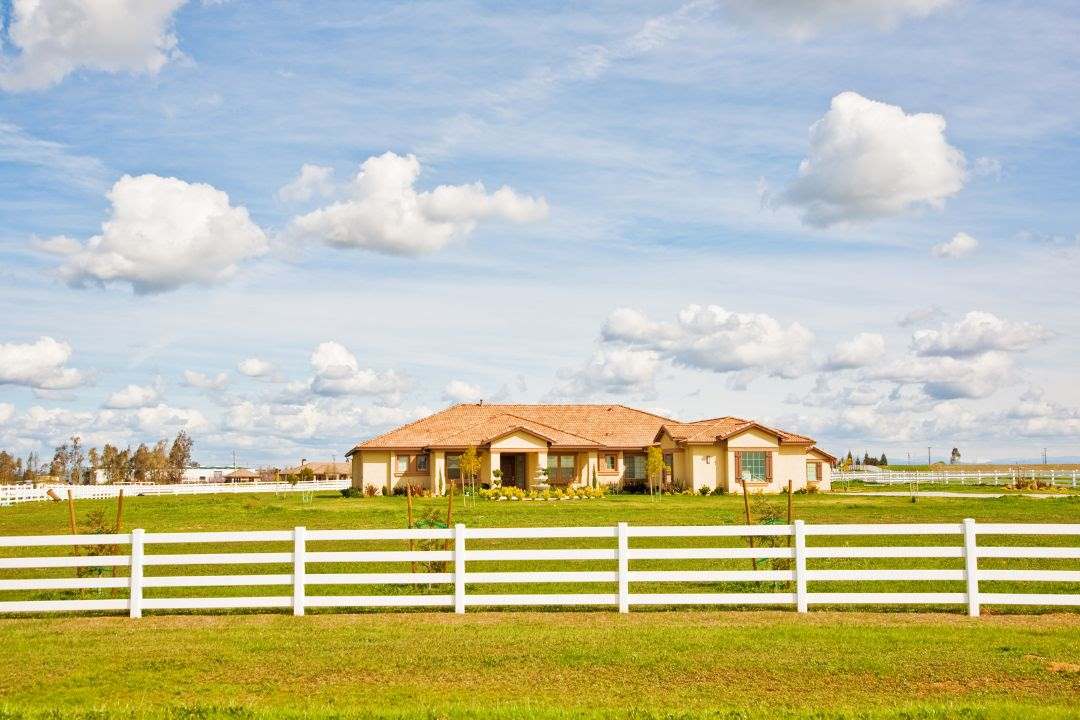Condominiums can be a great investment. They allow you to enjoy a luxury lifestyle and not worry so much about maintenance as compared to a single-family home. However, you must be aware of the common condo financing problems you could face before looking for a lender.
This comprehensive guide will discuss the common condo financing problems that you, as a borrower, can face and how you can seek out a mortgage broker to help purchase or refinance your condo property in case a traditional lender rejects your application.
Exploring the challenges of condo financing
Condo financing is more difficult than single-family financing because mortgage lenders look at and evaluate the condo’s finances and operations besides the usual scrutiny of the borrower’s creditworthiness. As a result, the process is quite lengthier, and traditional banks typically only provide loans for warrantable condos, not non-warrantable condos.
Unlike single-family homes, when you apply for a loan to purchase or refinance a condo, you must provide a questionnaire:
- The condo questionnaire is a document that the HOA or management company completes.
- The questions are aimed at helping the lender assess the condo project’s overall health.
- More importantly, by reviewing the completed questionnaire, the lender can determine if the condo project is warrantable.
Warrantable condos are the condos that meet the requirements and guidelines of Fannie Mae, Freddie Mac, the Department of Veteran Affairs (VA), or the Federal Housing Administration (FHA). The condos that fail to meet the requirements are classified as non-warrantable condos.
As a result, a borrower, despite having a good credit score and low debt-to-income ratio, may not be able to qualify for a loan from a traditional bank if the condominium is non-warrantable.
However, there are lenders that specialize in non-warrantable condo loans.
Five condo financing problems
Let’s review the five condo financing problems that you may encounter in owning your dream condo or refinancing your current one.
1. Understanding higher interest rates for condos
The interest rates for condo mortgages are generally higher than for single-family homes because agencies such as Fannie Mae and Freddie Mac view condos as riskier.
Therefore, the lender passes the risk on to you through marginally higher mortgage rates.
For warrantable condos, the interest rate can be about 0.125% to 0.25% higher than single-family home rates.
And, if the condo is classified as non-warrantable, the interest rate differential will be even higher, typically about 0.25% to 0.50% higher than rates for single-family homes.
In turn, the higher interest rate increases your debt-to-income ratio (DTI). In calculating your DTI, the lender will factor into your debt the proposed carrying costs of your condo.
For single-family homes, the carrying costs are “PITI”, which means you add up the following costs:
- Principal
- Interest
- Taxes
- Insurance
For condos, the carrying costs are “PITIA”, which means you add up the following costs:
- Principal
- Interest
- Taxes
- Insurance
- Association fees (homeowner (HOA) or condo association fees)
Therefore, condos generally have higher carrying costs than single-family homes. Not only is the interest rate higher but there is also an added expense “A” for association fees.
2. To get the best terms, the condo must be warrantable
Conventional conforming loans offer condo financing with a minimum 3% down payment. However, your credit score must be at least 620 and the DTI must be no greater than 43%.
More importantly, the condo must be on Fannie Mae or Freddie Mac’s approved list, meaning the condo must be warrantable.
For condos to be warrantable, strict guidelines related to the condos (such as no major litigation by or against the HOA, sufficient insurance coverage for the condo project to protect from unforeseen losses, sufficient reserves for replacements and repairs that affect the soundness, habitability, and safety of the project) need to be fulfilled.
Please note that if there is litigation concerning the HOA, the condo may still be warrantable if certain requirements are met (e.g., the condo’s insurance covers the litigation).
3. Non-warrantable condos have less favorable terms
It is very common for condominiums to fall in the non-warrantable category. If so, your condo financing options will be limited. Traditional lenders do not lend on non-warrantable condos, as they cannot resell such loans in the secondary market to government-backed institutions such as Fannie Mae and Freddie Mac.
Instead, the borrower will have to find a specialized lender, known as a non-QM lender, which has the risk appetite for non-warrantable condos.
If the property is a non-warrantable condo, the maximum LTV is lower than for warrantable condos. For example, non-QM lenders offering 75-80% LTV for warrantable condos only offer a maximum of 70-75% LTV for non-warrantable condos.
Also, as mentioned above, non-warrantable condos come with higher interest rates to offset the risk.
4. Jumbo loans for condos must satisfy strict underwriting requirements
If you need to purchase or refinance a condo with a jumbo loan amount, you’ll have to undergo a strict underwriting process.
Jumbo loans are considered non-conforming loans because the loan amount exceeds the prescribed limits of the Federal Housing Finance Agency (FHFA) and are not backed by Fannie Mae and Freddie Mac.
Since there is no backing from government-backed entities, jumbo loan applications are subject to higher scrutiny and go through a manual rather than automated underwriting process.
The risk for jumbo loans combined with non-warrantable condos is doubled, and thus, such loans are processed with even more stringent rules.
5. Private mortgage insurance (PMI) is difficult for condos
The lender requires the borrower to buy private mortgage insurance (PMI) when the down payment for the conventional mortgage loan is below 20% of the purchase price and the LTV ratio is above 80%, making the risk profile of the mortgage higher for the lender.
Some insurers have become picky and dropped their coverage on condo mortgages, while others are becoming quite restrictive. In such scenarios, the lenders may treat the mortgage deal as bad medicine and charge a heavy down payment in cash for remedy, which can sometimes go up to 40%.
Alternatively, in the case of non-warrantable condo loans, the non-QM lenders offering this product typically do not require PMI. Instead, the lender simply bakes the risk into a higher rate.
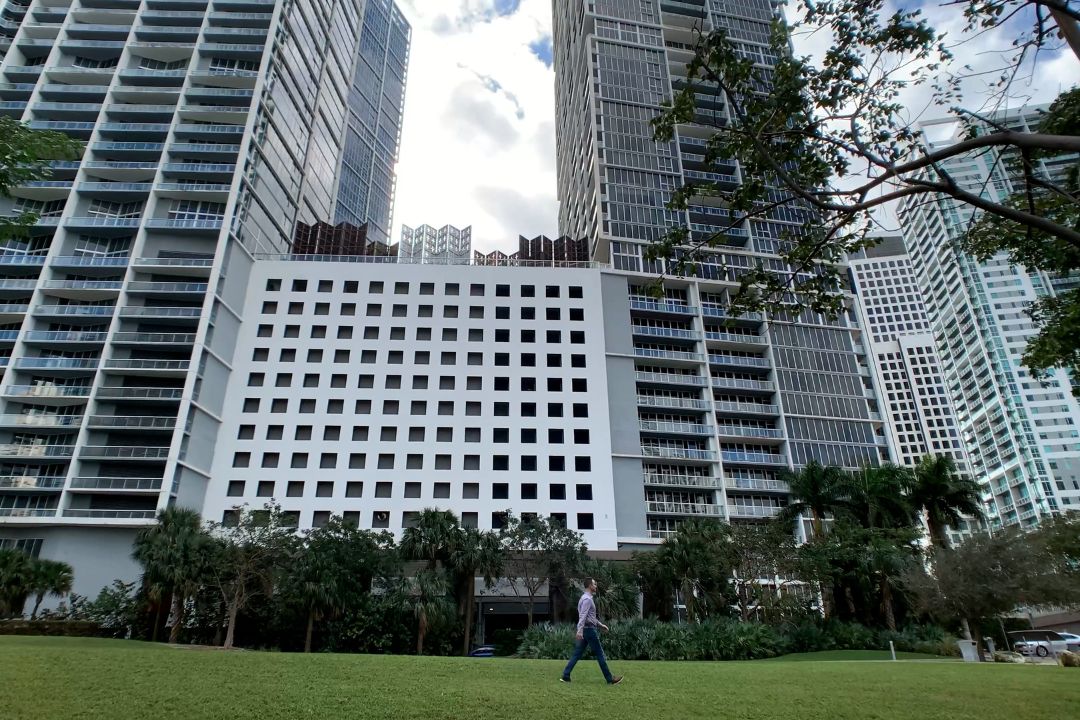
We can solve your condo financing problems.
Why are condos higher risk?
For condo loan applications, the lender must ensure the condo satisfies a very long list of requirements. The checklist for a condo is much longer than for a single-family home. If the condo checklist is not satisfied, the lender won’t be able to resell your loan on the secondary market.
Here a just a few of the red flags a lender must look for when scrutinizing the condo project:
- Does the HOA have sufficient reserve funds for unexpected repairs, replacements, and future improvements?
- Likewise, is the HOA’s insurance adequate to protect the project from unforeseen losses?
- Is the HOA a named party in pending litigation? Litigation concerning structural soundness are of particular concern to lenders.
- What percentage of the project is commercial space vs. residential space? For example, lenders do not embrace hotel or retail space within the condo development.
- Does a single person or entity hold many units in the condo building? If so, that one person or entity’s failure to make HOA payments can destabilize the HOA’s finances.
- Does the condo allow short-term rentals? Lenders don’t favor short-term rentals since it does not bring stability.
- What is the investor ratio? If the vast majority of the condo units are used as rental properties, that is a concern for lenders. Owner-occupied units tend to be better maintained than investment properties.
In addition, Fannie Mae and Freddie Mac rolled out new rules requiring property managers and condo boards to keep careful watch of the building’s structural integrity and the association’s financial health in the wake of the Champlain Towers South condominium collapse in Surfside, Florida in 2021.
Why would a condo not be Fannie Mae-approved?
To be on Fannie Mae or Freddie Mac’s approved condo list, the condo project must satisfy a long checklist of requirements. Common reasons for ineligibility include pending litigation (especially concerning safety, soundness or structural integrity), low reserves in the budget, the building is too new, and inadequate insurance coverage.
Here is a more detailed list of the most common reasons a condo may not make the Fannie Mae or Freddie Mac approval list:
- The project is not 100% complete and/or is subject to additional phasing or annexation.
- The developer has not transferred control of the HOA to the unit owners yet.
- Too many unit owners are 60 or more days delinquent on HOA association dues or special assessments.
- The HOA is involved in active or pending litigation.
- The investor ratio is too high (i.e., the number of units sold or closed or under contract to investor owners is too high in comparison to the number of units sold or closed or under contract to owner-occupants or second-home owners).
- The percentage square footage of the total project square footage for commercial or non-residential use is too high.
- The condo association’s insurance is inadequate.
- The condo association’s reserves in its budget are inadequate.
- The condo association lacks certain safeguards over its financial accounts (e.g., does not maintain separate accounts for operating and reserve funds, does not have appropriate access controls in place for each account, etc.)
- The project has hotel/motel/resort activities, mandatory or voluntary rental-pooling arrangements, or other restrictions on the unit owner’s ability to occupy the unit.
- There are deed or resale restrictions, e.g., the HOA has the first refusal right or imposes a fee in case of the sale of the condo unit.
- The project consists of manufactured homes.
- There are mandatory fee-based memberships for use of project amenities or services.
- There is non-incidental income from business operations.
- The project consists of supportive or continuing care for seniors or for residents with disabilities.
How DAK Mortgage can help with your condo financing problems
We specialize in condo loans, and since many condo projects are non-warrantable (especially in states like Florida), we’ve carved out a niche for non-warrantable condo loans in particular.
For example, we’ve helped borrowers obtain non-warrantable condo loans despite these problems:
- Solution for condo buyers: Our client was under contract to purchase a condo for $2.5M. However, the condo association had multiple problems, including zero reserves in its budget, control of the association had yet to be turned over from the developer to the unit owners, and the bylaws contained strict right-of-first-refusal language for the resale of units. We obtained a non-warrantable condo loan for $2M at 80% LTV, much to the pleasure of our client and the real estate agents.
- Solution for condo owners: We also helped our client, a Venezuelan foreign national, refinance his condo unit, despite the condo association being involved in construction defect litigation concerning the soundness, habitability, and safety of the project. We obtained a non-warrantable condo loan for $2.1M at 60% LTV.
As an experienced mortgage broker in Miami, we have condo loans (for warrantable and non-warrantable condos) for foreign nationals, self-employed borrowers, jumbo loan amounts, and as either investment or owner-occupied.

Condo financing doesn’t have to be difficult.
Key takeaways on condo financing problems
If you need a loan to purchase or refinance a condo, expect to run into these challenges:
- Higher level of scrutiny: Unlike a regular home loan for a single-family residence, a condo loan essentially requires two levels of approval. Not only does the lender scrutinize the financial health of the borrower, but also the financial health of the condo project.
- Higher interest rates and lower LTVs: Because condos are more complicated than single-family homes, lenders pass that risk on the borrower through higher rates and lower loan-to-values.
- Warrantable condos vs. non-warrantable condos: It is very difficult for a condo to be classified as a warrantable condo. If the homeowners association is deficient in some way, the condo is classified as non-warrantable, which limits your pool of lenders.
Despite those challenges, take heart in the fact that there are niche condo loan programs for warrantable condos and non-warrantable condos alike.
If you’ve been denied a condo loan by a traditional lender, we can help you get approved by an alternative lender for a conventional loan (non-conforming instead of conforming).
FAQs
Does buying a condo ever make sense?
Buying a condo can be preferable to buying a single-family home. If you want to enjoy urban living with luxurious amenities, and you prefer having a management company deal with the upkeep, condo life may be for you. A condo can also make a great investment property to rent out.
What is the downside of buying a condo?
The downside of buying a condo is that it might be difficult to find a loan especially if the condo is non-warrantable (i.e., doesn’t satisfy Fannie Mae guidelines). Also, compared to a single-family home, condos can have higher carrying costs, including higher interest rates and homeowner association fees.
What is the best down payment for a condo?
The best down payment for a condo is 3%, but that is only possible for warrantable condos that are approved by Fannie Mae or Freddie Mac. Otherwise, for non-warrantable condos, which lenders consider much riskier, you may be required to make a down payment ranging from 25% to 30%.
